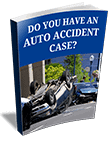What Is Motorcycle Accident Law?
State laws pertaining to motorcycle accidents are often logically referred to as motorcycle accident laws. Although the same rules of the road apply to both passenger vehicles and motorcycles, motorcycles are often required to meet additional standards. These standards include regulations for driving procedures, special licensing, safety equipment and other rules.
When a motorcycle accident happens, it is very important that the injured motorcyclist or loved ones of a motorcycle rider who did not survive an accident work with a skilled motorcycle accident attorney. If the accident was not your fault, you should speak with a personal injury attorney as soon as possible after the collision.
Motorcycle Licensing
A separate endorsement is required on driver’s licenses in most states, for the license holder to legally operate a motorcycle. There are many motorcyclists who are not even aware of this legal requirement, however. They operate their motorcycles on public roads every day illegally. If an accident occurs, the illegal motorcyclist is often cited as being partially to blame, if not entirely at fault. This can happen even if the accident was the result of other driver’s negligence.
Most states require motorcyclists to pass required safety courses before gaining endorsement on their driver’s license for legal motorcycle operation. These courses provide instruction in riding techniques, safety and laws associated with use of their motorcycle.
Safe Operation of Motorcycles
Just about every jurisdiction in the United States has legal requirements for motorcycle operators. Many states require helmets to be worn by motorcyclists and their passengers. If a helmet is not required, protective eyewear often is mandated by law. Reflective vests, padded or armored clothing, enclosed footwear and other gear are also often included within these laws.
State governments usually require daytime use of certain lights on the motorcycle, such as an always-on headlight. Other required lights include turn signals and brake lights.
Drivers of motorcycles who fail to meet these requirements endanger themselves, passengers on their bike and others on the roads. They also increase their liability in an accident, reducing the chances of recovering compensation from other drivers when an accident occurs.
Increased Liability for Motorcycle Operators
Recent changes in motorcycle accident laws have been executed to increase and extend penalties for automobile drivers who have accidents with motorcycles. This is supposed to help automobile operators increase awareness of motorcycles on the roads and to prevent accidents between these two types of vehicles, as part of which motorcyclists and their passengers are incredibly vulnerable to injury and fatality.
These laws have been questioned, however. Many people wonder if they are helpful in prevention of automobile and motorcycle collisions, at all. According to recent statistics, the majority of motorcycle accidents are the result of motorcyclist errors, not those of automobile drivers.
Interesting Statistics of Motorcycle Accidents
Some statistics of motorcycle accidents include:
- Motorcyclist failure to pay adequate attention is often the blame for motorcycle accidents
- Half of motorcycle accidents involving fatalities show alcohol impairment of the auto driver or the motorcyclist
- Most motorcycle accidents reflect poor collision avoidance on the part of the motorcyclist, such as over-braking, skidding, under-braking and other poor decisions. Counter-steering and swerving skills seem significantly absent in rider accidents.
- Motorcyclists typically only have less than two seconds to avoid an impending accident
- More accidents do not occur for motorcyclists with passengers on board
- More motorcycle accidents are attributed to motorcyclists in the age ranges of 20 to 29 and over age 65
- Fewer large displacement motorcycles are involved in accidents, but operators of these bikes suffer greater injuries than other motorcyclists
- Significantly more unlicensed and revoked license motorcyclists are in accidents than licensed ones
- Modified bikes, semi-choppers and café racers are involved in a much greater number of accidents than other types of motorcycles
- 98 percent of motorcycle collisions with other vehicles and 96 percent of motorcycle-only accidents injure the motorcyclist, with more than 45 percent being seriously injured
- Half of injuries to motorcyclists in accidents are to the ankle, foot, lower leg, knee and thigh
- At least 13 percent of motorcycle accidents result in serious groin injuries for the biker
Get the Legal Help You Need After a Motorcycle Accident
When you are involved in a motorcycle accident that was not your fault, it is important that you have the support and guidance of an experienced personal injury lawyer.

